Introduction
Regulatory compliance is a critical aspect of gaining approval in the beverage market. It involves adhering to laws, regulations, and standards set by governing bodies to ensure the safety, quality, and legality of products. In this report, we will explore why regulatory compliance is essential for beverage market approval, looking at the importance of compliance, the consequences of non-compliance, and how companies can navigate the regulatory landscape effectively.
The Importance of Regulatory Compliance
Ensuring Product Safety and Quality
One of the primary reasons regulatory compliance is essential for beverage market approval is to ensure product safety and quality. Regulations set by authorities such as the Food and Drug Administration (FDA) in the United States and the European Food Safety Authority (EFSA) in Europe are designed to protect consumers from potential health risks associated with consuming beverages. By complying with these regulations, companies can demonstrate that their products are safe for consumption and meet quality standards.
Building Consumer Trust
Regulatory compliance also plays a crucial role in building consumer trust. When consumers see that a beverage company follows strict regulations and standards, they are more likely to trust the brand and be confident in the safety and quality of the products. This trust is essential for establishing a loyal customer base and driving sales in the competitive beverage market.
Meeting Legal Requirements
In addition to ensuring product safety and building consumer trust, regulatory compliance is necessary to meet legal requirements. Non-compliance with regulations can result in fines, legal action, and even product recalls, which can have a significant impact on a company’s reputation and financial stability. By adhering to regulations, companies can avoid legal consequences and maintain a positive image in the market.
The Consequences of Non-Compliance
Financial Penalties
One of the most significant consequences of non-compliance with regulatory requirements is the risk of facing financial penalties. Companies that fail to meet regulatory standards may be subject to fines, which can be substantial and impact their bottom line. For example, in 2020, PepsiCo agreed to pay $139,000 to settle alleged violations of the Clean Air Act, highlighting the financial risks associated with non-compliance.
Reputational Damage
Non-compliance can also lead to reputational damage, as consumers may lose trust in a brand that fails to meet regulatory standards. This can result in a decline in sales, loss of market share, and long-term damage to the company’s reputation. For example, Coca-Cola faced backlash in 2016 when it was reported that some of its products in India contained harmful pesticides, leading to a tarnished reputation and loss of consumer trust.
Product Recalls
Another consequence of non-compliance is the possibility of product recalls, which can have serious implications for a company. Product recalls not only result in financial losses due to wasted inventory and production costs but also damage the brand’s reputation and erode consumer trust. In 2018, Nestle had to recall its La Laitière dairy desserts in France due to the presence of glass particles, highlighting the importance of compliance in preventing such incidents.
Navigating the Regulatory Landscape Effectively
Investing in Compliance Programs
To ensure regulatory compliance and gain approval in the beverage market, companies must invest in robust compliance programs. This involves staying informed about relevant regulations, conducting regular audits and inspections, and implementing quality control measures to meet standards set by regulatory authorities. By prioritizing compliance, companies can mitigate risks and demonstrate their commitment to product safety and quality.
Engaging with Regulatory Authorities
Engaging with regulatory authorities is another crucial aspect of navigating the regulatory landscape effectively. By establishing open communication channels with governing bodies, companies can seek guidance on compliance requirements, address any issues proactively, and demonstrate a willingness to cooperate with regulators. This collaborative approach can help companies build positive relationships with authorities and ensure smooth approval processes for new beverage products.
Utilizing Technology for Compliance
In today’s digital age, technology plays a vital role in helping companies achieve regulatory compliance. From automated compliance monitoring systems to data analytics tools, technology can streamline compliance processes, identify potential risks, and ensure timely corrective actions. By leveraging technology effectively, companies can enhance their compliance efforts, reduce the likelihood of non-compliance, and gain a competitive edge in the beverage market.
Conclusion
In conclusion, regulatory compliance is essential for beverage market approval due to its role in ensuring product safety, building consumer trust, and meeting legal requirements. Non-compliance can lead to financial penalties, reputational damage, and product recalls, highlighting the importance of prioritizing compliance efforts. By investing in compliance programs, engaging with regulatory authorities, and utilizing technology effectively, companies can navigate the regulatory landscape successfully and gain approval for their beverage products. Compliance is not just a legal requirement but a strategic imperative for companies looking to succeed in the competitive beverage market.




